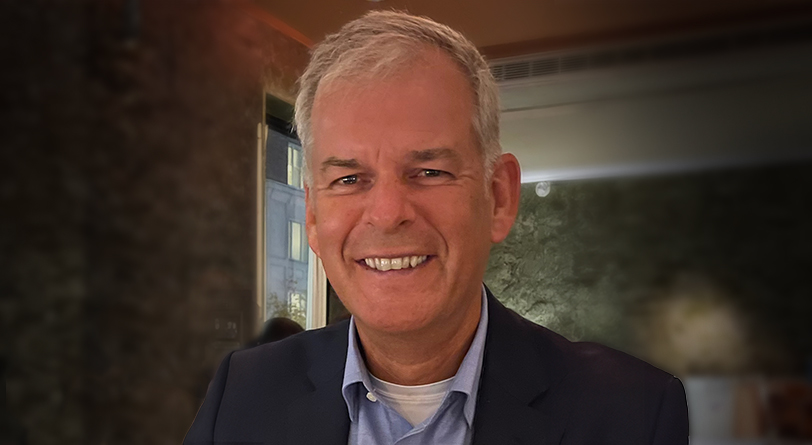Chris Wood, regional director for North America at eProductivity Software (ePS), believes that the right software tools, correctly deployed, can transform how businesses operate: “Empowering teams, streamlining processes, and enabling both individual and organizational growth.”
That is a message that the global company, which provides enterprise resource planning (ERP)/management information system (MIS) software solutions to the packaging industry, has been spreading for more than 30 years. During 25 of those years, the company has been a member of the Flexible Packaging Association (FPA), making ePS one of 20 FPA members to hit a milestone this year with the trade association.
As part of FlexPack VOICE’s® annual celebration of companies reaching milestones in five-year increments, Wood offered some of his insights into how the packaging industry can benefit from improved technology systems, while encouraging companies to engage with artificial intelligence (AI) fully.
The software landscape is evolving to meet the needs of packaging manufacturers, he says.
“But many still run legacy systems that limit agility and the ability for flexible packaging converters to understand and react to changing business conditions,” Wood says. “We believe the future lies in intelligent, connected platforms that deliver actionable insights and streamline the entire business, from quote to shipping.”
“In addition, there will be an increasing gap between those companies that embrace automation and AI and those that choose not to,” Wood adds. “That is where we are focused on our product roadmap: helping flexible packaging companies operate more efficiently and profitably in a dynamic, high-demand environment.”
FlexPack VOICE: Tell us a bit about your company.
Chris Wood: At ePS, we provide mission-critical software solutions purpose-built for flexible packaging manufacturers. With over 30 years of experience and a dedicated focus on the flexible packaging sector, our systems—ranging from ERP and manufacturing execution systems (MES) to advanced scheduling and analytics—are designed to help converters run smarter, faster, and more profitably.
FPV: What do you see as the major challenges this year that affected your business, especially as they might pertain to flexible packaging?
CW: In 2025, manufacturers faced mounting pressure to reduce waste, increase efficiency, and meet increasingly stringent sustainability targets. Our customers continue to grapple with labor shortages and the complexity of running high-mix, low-volume jobs profitably. There is a growing need to replace manual processes with digital systems that provide real-time visibility, traceability, and control. These challenges have amplified demand for automation and intelligent data use, areas where our solutions help flexible packaging companies make measurable improvements. Our role is to empower customers with the tools to adapt quickly, manage change effectively, and deliver exceptional service in a cost-sensitive market.
FPV: What do you think will be the primary challenges later this year and into 2026?
CW: We expect continued acceleration in automation, AI adoption, and the shift toward cloud-based platforms. Customers want scalable solutions that reduce reliance on tribal knowledge and drive consistent performance across plants. If what we are seeing in Europe transfers to North America, then sustainability will also remain at the forefront, particularly in areas such as energy use, materials management, and reporting. At the same time, we anticipate an increase in demand for collaboration between converters and brand owners. Data transparency, speed to market, and quality assurance will be critical. Our goal is to provide the software foundation that supports this evolution, helping our customers remain agile and resilient amid changing regulations, customer expectations, and supply chain pressures.
FPV: What do you think should be the government’s role in a circular economy?
CW: Governments have a vital role to play in enabling the circular economy, especially in supporting infrastructure investment, standardizing definitions and metrics, and incentivizing innovation. Flexible packaging is often misunderstood in sustainability conversations, despite its material efficiency and carbon advantages in many applications. Clear policy direction is essential. Advanced and chemical recycling need robust support and consistent frameworks to become scalable solutions. We would also welcome increased collaboration between policymakers, brand owners, and converters to ensure practical, science-based approaches that encourage progress rather than penalize complexity. It is not just about regulation; it is about alignment, investment, and education.
FPV: Anything that you would like to add?
CW: Our long-standing partnership with the FPA underscores what matters most to us: maintaining a deep connection to our customers and the industry we serve. We are proud to have walked alongside flexible packaging manufacturers for the past 25 years, and we remain committed to helping them succeed in the next 25 years and beyond, with purpose-built technology, deep domain expertise, and a relentless focus on customer outcomes.
Thomas A. Barstow is senior editor of FlexPack VOICE®.
